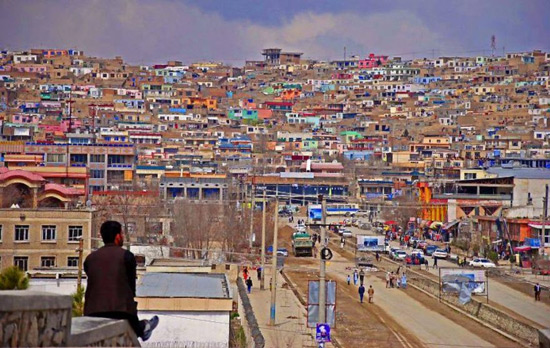Kabul, which inhabits residents with a wide range of socio-cultural background globally known as the capital city of Afghanistan. During the four decades of civil war, Kabul damaged entirely, and lost its prestige as the symbol of Afghan ancestress civilization and ancient city ̶ to a negative image one – termed as the center of world crimes. In addition, Kabul is an over populated city that experience suicide and complex attacks on the civilian, government and international targets and now in twenty first century, it is one of the most dangerous places for businessmen, foreigners, local officials and ordinary people. Kabul passed the longest depression period of its life unethically. The saddest events are; many brains and scholars lost their lives via the cause of mass casualty incidents and painfully, numerous families missed their dearest members and their parents within no reason and fault. However, it is just a few part of Kabul case, the rest are in other pages. The issue of why Kabul changed to the deadliest place in the country the article is trying to answer partly. As an opening point, Kabul inhabitants need to understand:
Point 1: A neighborhood cannot continue his/her own life without security, which is one of the basic needs of the Afghans today. For not only personal security but also the security of the persons’ living environment is of extreme importance. Therefore, disagreement between upper- income class and lower – income class is in the favor of crooks. Partnership, collaboration, coordination with security sector and supporting each other in the neighborhood, is a key to have long last security in Kabul city.
Point 2: For the administration portion, in the fight against crime in both aspects; the prevention of violence crime and / or its avoidance, only the performance of law enforcement agency like police is not enough. And it is not only their duty, the views of other disciplines like sociologist and criminologist are very vital and must be listened, particularly, when drafting a plan for the city. Remembering that, engineers were designing a house for safety, but they were not designing for people.
There is an interrelation between urbanization and crime. It is well known that crime in Kabul city that create insecurity and anxiety is directly related to design of buildings and city utilization. In the realization of an act of crime, the fact that the victim and the concepts of place are as much impactful as the convict indicate that the place where the crime is committed is, at least, as responsible as the person who commits the crime. As the main point, the current features of Kabul city shows the imbalance of the distribution of income as the first factor; therefor crime target the property of wealthy people, and as the second factor, the problem of Kabul is the city operation itself is persuading criminals to commit crime. For instance, when a newcomer comes to Kabul, he/ she would observe disunity, disrespect and disorders among the residents of the same district, instead of feeling solidarity, mutual aid, mutual respect and spiritual supportive. He/ or she would see directly, in one lane two different pictures bulging injustice and deep inequality. In one side, the rich family live ̶ who have everything, money, luxury house and expensive cars, but on the other side of the same lane ̶ the poor family live, the poor does not have any penny to buy a piece of bread for his /or her innocent children to survive. So, he/ or she will not see any common interest to engage both communities as their common ground. Their behaviors are totally different, the poor evaluate the rich based on the stereo type that exist in Afghanistan, “rich people have power and engage in corruption, and bribe”. On the other hand, the rich people judge unfairly and do not understand the poor problems. In these circumstances, institutions, such as the family and religion, which serve to keep the society together, may experience disintegration and breakup. For the fact, greed, anger, jealously, revenge, and pride are the reasons that criminals commit different crimes in Kabul city easily and more than that the city “utilization” facilitate to do it with less risk. So, exist of huge gap between the rich and the poor inspires criminal to commit continuous crime in Kabul and create concern to makes live miserable for all.
Hence, crime and criminality are directly interrelated with urban environment. Crime rates are higher in larger cities. Densely populated cities make control difficult, thereby providing the grounds for crime. In crowded cities like Kabul, are many people who fit the victim profile. Therefore, the act of crime does not necessitate an extra effort. Where control is inadequate, the victim will find him/herself within the act itself. The reasons why the acts of crime are more frequent in Kabul city, because, there is plenty of money made through crime activity in urban space. Urban space provides the grounds for criminally-inclined individuals to come forward. The probability of getting caught is low. Almost ¼ of the population live in Kabul city. The security forces, equipment- and staff-wise, fall short both in quality and in quantity
Home » Opinion » Kabul Accommodate the Richest and the Poorest – Never Feel Secure
Kabul Accommodate the Richest and the Poorest – Never Feel Secure
| Dawlat Bakhtiari

